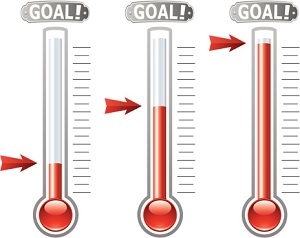Behcets Disease

Today I thought I should write a little something about the rare and complex disease known as Behcets Syndrome (Disease). Those that are regular clients of Beauchamp Foot Clinic will be aware of our efforts to raise money and awareness of this condition. We are all very grateful to all those who have kindly donated money to help save the Behcets Syndrome Society, and also those who bought the recycled denim bags at Christmas made by my sister (Coleen Dulledge). 10% of proceeds are donated to the society.
Behcets, is a chronic condition caused by disturbances in the body’s immune system. The condition is named after a Turkish professor, a scientist who first recognised the condition in 1924. The disease is also known as the ‘Silk Road’ disease as it is more prevalent in the Middle East, North Africa, Turkey and Japan. It is however very rare with as little as 1000 people diagnosed in the UK. Because of its rarity there is very little known about the condition. It is hard to diagnose as there is as yet no diagnostic test and it is a matter of eliminating other disorders. There are however some significant symptoms that seem to affect most people with Behcets. The doctors are able to look at specific patterns and repeated outbreaks. There are however other diseases with similar symptoms that overlap with those of Behcets making diagnosis very difficult.
It is not yet understood what causes Behcets. It affects both men and women, and even children have been diagnosed with it. It is a chronic and lifelong condition for which there is at present no known cure. There are treatments, but it can take time to find the correct treatment for individuals. The treatment can help with the symptoms but it may only put the patient into remission for a while as further flares are still likely.
So how then can a diagnosis be made? As previously mentioned there is no specific test for Behcets yet? Basically, there is a list or index of suspicion. This will be assessed by the consultant when a patient presents with two or three of these possible manifestations:
- Painful, recurring mouth and genital ulcers OR
- Painful recurrent ulcers and an inflamed eye OR
- Painful recurrent mouth ulcers, genital ulcers and an inflamed eye OR
- Painful recurrent mouth ulcers,genital ulcers and inflamed joints OR
- Painful recurrent mouth and genital ulcers and skin lesions OR
- Inflamed eyes, thrombophlebitis and skin manifestations OR
- Painful recurrent mouth ulcers an inflamed eye and a positive family history
These are not all definite indications of Behcets and there are many other examples of symptoms. However, they are good in suspecting a diagnosis so further advice must be sought.
Some of the main features of Behcets are:
- Mouth ulceration, typically occurring more than 3 times in a 12 month period. These can be very painful.
- Skin lesions, these may include acne like lesions, red tender swellings and ulceration.
- Eye involvement, Inflammation of the iris or retina; this can also lead to blindness.
- Arthritis (joint pain) this may occur in 50% of patients. It is again inflammatory causing stiffness, swelling, warmth and pain. Any joints can be affected, but mostly the knees and small joints of the hands and wrists.
- Thrombophlebitis, which is inflammation of the veins most frequently in the lower legs.
- Arteritis, Inflammation of arteries which may swell at points of weakness (aneurysms) or rupture causing bleeding into the tissues.
- Central nervous system involvement, inflammation around the veins in the brain.
- Gastrointestinal ulceration, this usually involves the colon which may bleed and perforate.
Although, at present there is no cure for Behcets Disease, as mentioned earlier there is effective treatment available. The treatment can put the condition into remission sometimes for several years. On a more positive note, research into a diagnostic test is currently being carried out Hammersmith hospital. It is hoped that earlier diagnosis will help patients receive treatment sooner and hopefully avoid some of the more damaging affects of Behcets.
All information on this website is for general guidance only and is not intended as a substitute for the personal medical advice of health care professionals or your own doctor.
